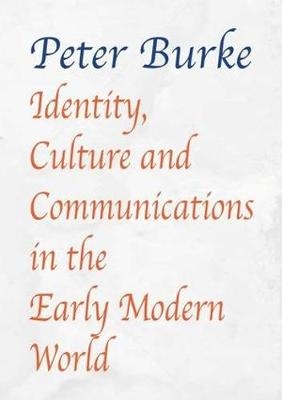
Identity, Culture & Communications in the Early Modern World
Edward Everett Root (Verlag)
978-1-912224-13-5 (ISBN)
Peter Burke was, from 1962-79, one of the leading educational innovators in developing the inter-disciplinary School of European Studies at University of Sussex. He then moved to the University of Cambridge, where he now holds the title of Professor Emeritus of Cultural History and Fellow of Emmanuel College. He is celebrated world-wide as a historian both of the early modern era and as a writer and teacher who emphasizes the relevance of social and cultural history to modern issues. He is married to Brazilian historian Maria Lucia Garcia Pallares-Burke. â His many influential works include: The Italian Renaissance (1972); Popular Culture in Early Modern Europe (1978); Sociology and History (1980); The Renaissance (1987); The French Historical Revolution: The Annales School 1929-89 (1990); History and Social Theory (1991); The Fabrication of Louis XIV (1992); The Art of Conversation (1993); Varieties of Cultural History (1997); The European Renaissance: Centres and Peripheries (1998); A Social History of Knowledge (2000); Eyewitnessing (2000); New Perspectives on Historical Writing (2001) (editor and contributor); A Social History of the Media: From Gutenberg to the Internet (2002) (with Asa Briggs); What is Cultural History? (2004); Languages and Communities in Early Modern Europe (2004); Cultural Hybridity (2009); and A Social History of Knowledge Volume II: From the Encyclopedie to Wikipedia (2012).
Introduction.
Section A. Language and translation.
1. A Civil Tongue: Language and Politeness in Early Modern Europe.
2. Diglossia in Early Modern Europe.
3. The Renaissance Translator as Go-Between.
4. The Jesuits and the Art of Translation in Early Modern Europe.
Section B. Cities and Communication.
5. Early Modern Venice as a Centre of Information and Communication. 6. Rome as a Centre of Information and Communication.
7. The Republic of Letters as a Communication System.
8. Historical Reflections on Urban Violence.
9. Imagining Identity in the Early Modern City.
10. Urban Sensations: attractive and repulsive.
11. Communication.
| Erscheinungsdatum | 14.06.2018 |
|---|---|
| Verlagsort | Brighton |
| Sprache | englisch |
| Maße | 148 x 211 mm |
| Themenwelt | Geisteswissenschaften ► Geschichte ► Geschichtstheorie / Historik |
| Geschichte ► Teilgebiete der Geschichte ► Kulturgeschichte | |
| ISBN-10 | 1-912224-13-5 / 1912224135 |
| ISBN-13 | 978-1-912224-13-5 / 9781912224135 |
| Zustand | Neuware |
| Haben Sie eine Frage zum Produkt? |
aus dem Bereich


